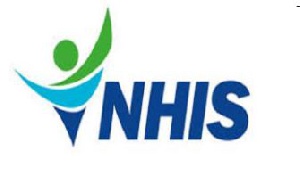Mr. Nii Ankonu Annorbah-Sarpei, Director of Programmes, Alliance for Reproductive Health Rights (ARHR) has urged the government to ensure that adolescents enjoyed some health benefits under the National Health Insurance Scheme (NHIS.
He said the benefits should provide adolescents in the country the opportunity to have access to a free treatment of Sexually Transmitted Infections and family planning services to improve their reproductive health.
Mr Annorbah-Sarpei said most adolescent girls were not able to afford family planning and STI treatment services due to financial challenges, and this posed a great danger to their reproductive health.
He was speaking to the Ghana News Agency in an interview on the sidelines of a two-day training workshop for 20 Adolescents Health Champions (AHCs) from South Dayi District in Ho, the Volta Regional capital on their sexual and reproductive health rights.
The training was organized by ARHR in collaboration with the Volta Educational Renaissance Foundation (VERef) with funding from the United Nations Population Fund (UNFPA) and the Canadian government.
It is part of ARHR and UNFPA’s five-year project, being implemented in five districts - Komenda-Edina-Eguafo-Abirem in the central, Bosome-Freho in Ashanti, South Dayi in Volta, Nzema East in Western and Ashiedu-Keteke sub-district in the Greater Accra region in the country.
The project is dubbed: “Empowering Adolescent Girls through Improved Access to Reproduction Health Information and Services and quality gender Responsive Services."
Mr Annorbah-Sarpei said the training aimed at equipping the AHCs with the requisite knowledge regarding their sexual and reproductive health rights so they could facilitate such eduction among their peers in their various communities.
He said the project was also aimed at addressing the gaps in service delivery for adolescents and to improve their ability to access health services to address health challenges confronting them.
Mr Annorbah-Sarpei said the project had successfully reduced the incidence of teenage pregnancy in some communities it was being implemented.
He called on opinion leaders, traditional and religious leaders, and parents to help bring issues affecting adolescents to the attention of the authorities for redress.
Madam Albertina Alipui, Acting Finance, and Administration Manager, VEReF said reproductive health rights education was necessary to inform the adolescents about their sexual and reproductive health rights.
She said adolescents could be able to demand their reproductive health rights only when they were well empowered and had much knowledge regarding those rights.
Madam Alipui said the AHCs were expected to serve as role models to their peers and facilitate positive change among them.
She urged them to endeavour to utilize the knowledge they had acquired in a manner that would be beneficial to them and their peers as well as the larger society.
Some of the participants who spoke to the GNA were grateful to the organizers and the sponsors for the project and promised to put all they had acquired into practice.
They said the project had brought a lot of positive changes into their lives and enlightened them on issues affecting them and how to successfully seek redress.
They pledged to serve as agents of change to campaign against teenage pregnancy and also champion personal hygiene among their peers.
General News of Sunday, 21 June 2020
Source: GNA

















